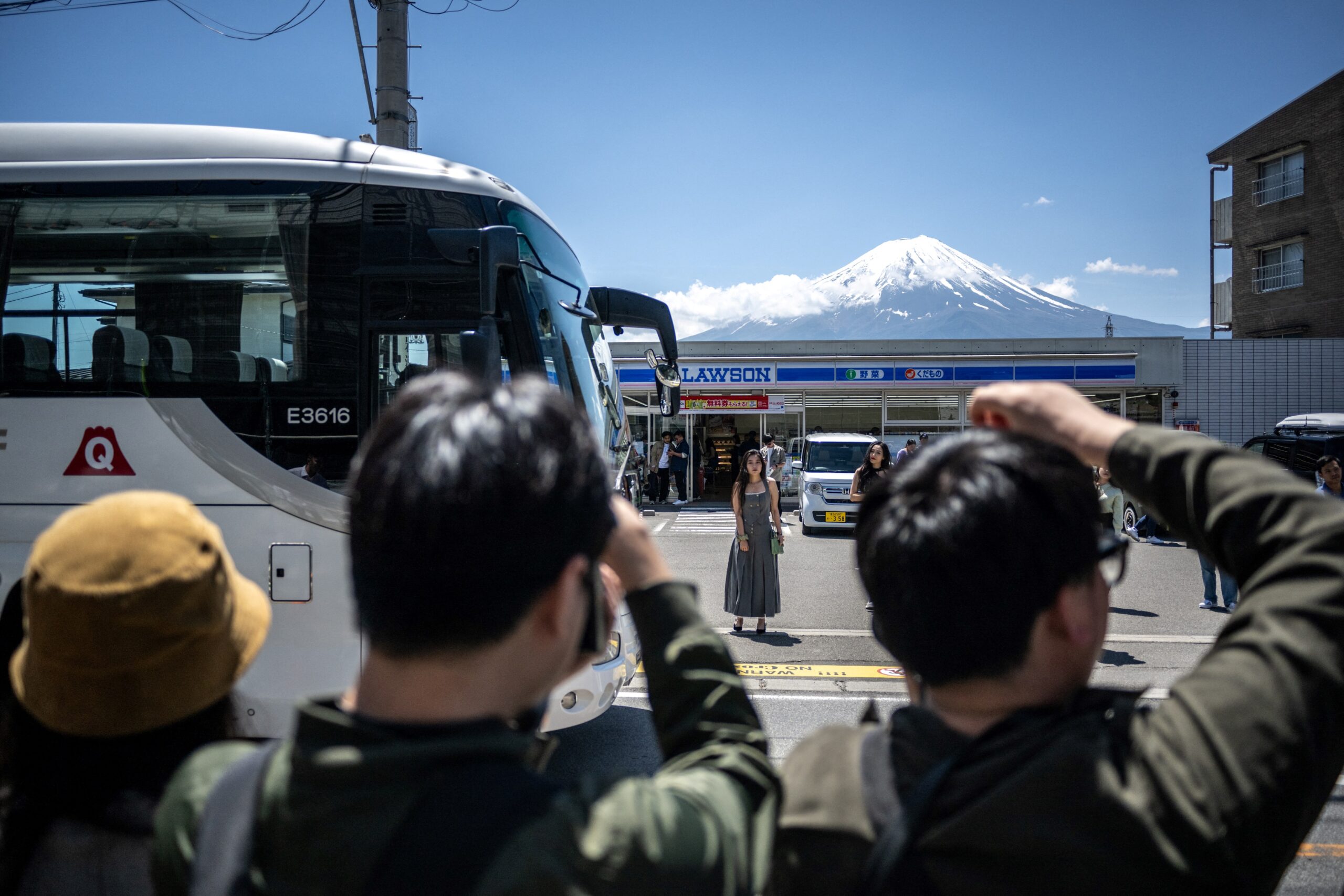Japan’s Mount Fuji barrier delayed

Tourists take pictures from the opposite street of a convenience store with Mount Fuji on May 3, 2024, before a huge black barrier which will be installed to block Mount Fuji from view, in the town of Fujikawaguchiko, Yamanashi prefecture. Agence France-Presse
TOKYO — Tourists have a few more days to snap Mount Fuji at a popular vantage point after Japanese authorities said Thursday that the construction of a barrier has been delayed.
Fujikawaguchiko town is building the screen to deter people from taking pictures of Japan’s most famous landmark from a pavement opposite a Lawson convenience store.
Residents complain that the visitors cause traffic problems and behave badly in their desperation for the perfect Instagram post of the snow-capped volcano.
READ: Japan town begins blocking Mt. Fuji view from ‘bad-mannered’ tourists
The barrier was originally scheduled to be in position last week, and then by mid-May, but a town official told AFP on Thursday that there were problems getting the required materials delivered.
“We believe we should receive necessary parts on or around May 20 or later,” the official said, without wishing to be named.
The barrier made of netting is meant to measure 2.5 by 20 metres (eight by 65 feet) and the requisite poles have been in place since early May.
Lawson issued a statement on Sunday to “deeply apologise to the local residents, store customers, and the many other people who have been inconvenienced and troubled” by the popularity of the vantage point.
The convenience store chain said it had “dispatched staff from Lawson headquarters” and “put up signs, in multiple languages, stating that crossing the street in front of the store is prohibited.”
It is also considering deploy private security staff.
READ: Climbers to pay $13 fee on popular Mount Fuji trail
Record numbers of overseas tourists are traveling to Japan, where monthly visitors exceeded three million in March for the first time.
But as in other tourist hotspots, this has not been universally welcomed. In Kyoto, locals have complained of tourists harassing the city’s famed geisha.
Meanwhile, hikers using the most popular route to climb Mount Fuji this summer will be charged $13 each, with numbers capped to ease congestion and improve safety.